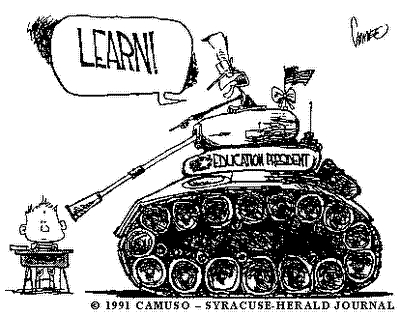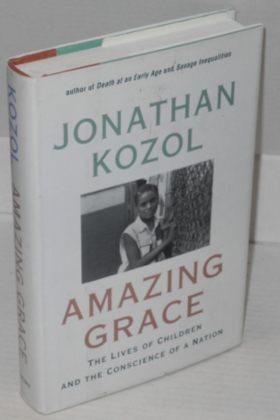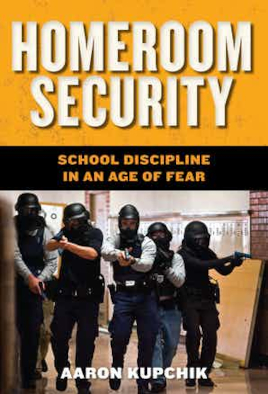Note: In 2021 I’ll publish one blog post per week. Here’s entry 15 of 52.

Currently my day job is substitute teaching in public education, something I did previously in Texas, too. Mostly known for popping into rowdy classrooms for a single day at a time, substitutes sometimes work long-term assignments also, effectively replacing the regular teacher across multiple weeks or months, as I’m doing now. There’s a lot I could say about schooling, especially this spring as students in the United States are encouraged to return to poorly outfitted classrooms against the advice of epidemiologists. I worry some of the innovations (to use bizspeak) hit upon during the struggles of remote learning might be forgotten in the rush back to so-called normalcy — for instance, teaching to the test and one-size-fits-all attitudes were thankfully dropped in the last year, but they’ll presumably return soon unless there’s a fight to stop them. Recently I sent many freelance pitches on the subject out to corporate media, nonprofit news, and literary magazines; we’ll see if I get a commission. In the meantime, I thought something quick and focused on the topic might be nice to self-publish here.
There are four books on education that have had an impact on me. What follows is a short review of two of them. In the near future, I’ll blog about the other two. (I’m just cutting in half what would otherwise be a review of four books, in the interest of saving time.)

By Jonathan Kozol, Amazing Grace: The Lives of Children and the Conscience of a Nation, 1995. I read this roughly a decade ago, around the time I was first going into teaching in Texas. I no longer have a copy of the award-winning bestseller on hand, but I remember the book was very much a tearjerker. It describes public education in the poorest U.S. congressional district then and now, in the Bronx. Kozol exposes in great detail the poverty, racism, and other injustice of public education there, telling the stories of individual students and families. I strongly remember how he very effectively depicts, as the New York Times review puts it, “the hypersegregation of our cities [that] allows whites to maintain physical as well as spiritual distance from complex and daunting urban problems.” Kozol describes the heroic effort put in by many school employees, and the ways employees, students, and families supported one another. In the wealthy private schools I experienced, something like a diagnosis of severe mental illness (whatever that means) would serve as pseudo-justification for ostracizing and making fun of a troubled kid. But I’ve seen firsthand in public schools, otherwise beaten down by a lack of resources and care from the surrounding world, how some students will of their own initiative provide unpaid support to diagnosed kids, just to aid them — something the upper, upper middle, or intelligenstia classes will completely forget exists, erased in their addiction to comfort. I also remember a friendly coach who collected donated clothes and stored them in a portable for poor students to have. I could tell those stories and many more in great detail, some other time. It’s just to say that the contrasts between fancy-pants private schools and worn-down public schools are very striking. The latter aren’t utopias to be romanticized — many bullies and awful, fatalistic teachers, along with other problems, fill public schools, but with 50+ million people in the public education system across the United States, they deserve more attention than the intelligentsia usually deign to give them. You can find out more about Amazing Grace on Kozol’s website. As the book’s subtitle suggests, that the well-off let most public schools rot, shows the low approval given to children, compared with, say, the high approval given to video games (gauged by discrepancy in amount of time individuals devote to each). Thankfully in many areas that’s been changing dramatically in the past few years. I should conclude with the caveat that since I haven’t read this book in a very long time, I don’t know what all I would make of it now were I to re-read it.

By Aaron Kupchik, Homeroom Security: School Discipline in an Age of Fear, 2010. This book, published by NYU Press, I also read roughly a decade ago — due to a very good review of it at Salon. Homeroom Security combines two topics I follow, education and authoritarianism (surveillance, cops everywhere, crushing of dissent, etc.). Like the Salon review says, the sociology/criminology professor wrote it in such a fair way that doubters who read the book can really be won over to his “radical” thesis: social support and participatory environments make schools safe, not the battle-zone mentality. I remember also (I haven’t read it in a decade, so again the same caveat as with Amazing Grace) that the academic Kupchik very effectively integrates both quantitative methods (statistics regarding money, measurable outcomes, and more) with qualitative ones (interviews, visiting the campuses for long durations like an an anthropologist, and so on). Most importantly, the book discusses how the armed cops, surveillance systems, and other military-like features lately ubiquitous in schools condition kids to believe those elements are just normal in life, to be expected always, rather than only sensible as rare emergency measures (i.e., humans have unfortunately set up the endo-realities of our our social/governance systems as if we’re experiencing permanent nonstop emergency, with all the health-destroying stress that entails). I’ll let the excellent Salon review — which is mostly an interview with Kupchik — finish up my work for me: below, Kupchik talking with the Salon interviewer:
We’re teaching kids what it means to be a citizen in our country. And what I fear we’re doing is teaching them that what it means to be an American is that you accept authority without question and that you have absolutely no rights to question punishment. It’s very Big Brother-ish in a way. Kids are being taught that you should expect to be drug tested if you want to participate in an organization, that walking past a police officer every day and being constantly under the gaze of a security camera is normal. And my concern is that these children are going to grow up and be less critical and thoughtful of these sorts of mechanisms. And so the types of political discussions we have now, like for example, whether or not wiretapping is OK, these might not happen in 10 years. […] As part of my research, I interviewed students, and one of the questions that seemed like a good idea at the start was asking them whether they liked having the SROs [school resource officers] in their schools. For me, having gone to public schools without cops, this really seemed odd to me, to put police officers in peaceful schools. And the students were puzzled by this question, and I quickly realized that it makes no sense to them because it’s all they’ve ever known. It’s completely normal. It makes about as much sense as if you asked them, “Should your school have a principal?”
The two books above, I highly recommend to anyone interested in reading about public education. The other two I’ll post about in the near future.
In conclusion
For now, let me conclude by saying that what I’ve found most important as a substitute teacher in a long-term assignment is just showing up, being truly present, for the kids. So they know they have someone consistent, there each school-day to greet them, who won’t be a mean-spirited dictator. A simple example: if students are marked repeatedly tardy or absent, there can be a variety of unfortunate repercussions for them. If they’re a few minutes late, it’s safer to just mark them present than it is to force them into a show-down with the quasi-legal system embedded in the schools, when the real problem might be a late bus or a domestic crisis or lack of nutrition/sleep or any number of other things that may be no one’s fault. Having a teacher they can count on not to be a threat, is important, in this otherwise stressful, endosocial world of permanent nonstop emergency that we’ve built for ourselves. And then, I can teach students about geometry and whatever else. Student challenges with, say, math, are often simply troubles with English language learning for migrant/refugee kids, or students understandably feeling miserable with, and resistant to, compulsory education in the first place. It’s helpful when school settings permit teachers to pick just one little piece of the math puzzle that students are struggling with, and break it down, teach it slowly, to make sure everyone understands, while meanwhile giving the advanced students enrichment books to pursue on their own. With the likely return of teaching-to-the-test pressure (or the school loses funding when students don’t pass) and one-size-fits-all in the name of efficiency, not to mention grief and stress in connection with the pandemic — and the poverty, racism, and authoritarianism Kozol and Kupchik document — I fear there are dark days ahead for U.S. public schools. But with the Internet encouraging people to become more outspoken about everything, to stick up for themselves and others, there’s also a lot of room for hope.


This blog post, Review of education books, part one of two, by Douglas Lucas, is licensed under a Creative Commons Attribution-NonCommercial-ShareAlike 4.0 International License (human-readable summary of license). The license is based on a work at this URL: https://douglaslucas.com/blog/2021/04/17/education-books-review-1of2/. You can view the full license (the legal code aka the legalese) here. For learning more about Creative Commons, I suggest this article and the Creative Commons Frequently Asked Questions. Seeking permissions beyond the scope of this license, or want to correspond with me about this post one on one? Please email me: dal@riseup.net.
 Twitter:
Twitter:
1 comment so far ↓
Yeah, there’s this Noam Chomsky quote where he says that teaching is like 90% getting the students interested in the material and 10% having to do with methods. And that sounds like exactly what you’re talking about here… how it’s important to relate to and respect the students as human beings first and then worry about what to teach and then how.
On another topic…
“…shows the low approval given to children, compared with, say, the high approval given to video games…”
Woah, my “Glen Beck-OK Boomer” alarm went off a little on that one! (That’s okay, though, LOL!) To be fair, I’ve heard video games gross more in sales than Hollywood movies nowadays, so they’re pretty hard to beat in terms of time people invest in them.
But the schools-vs.-video-game point made me think of the recent discussions/work on “gamifying the classroom,” in which some educators believe successful video game franchises to be superior environments for learning, blending tech with online social interaction with motivation to get players to master the sometimes quite complicated ideas necessary to succeed at the games. Of course, there’s a bunch of gimmicky crap they push on Amazon within this “gamifying” genre, but one author I think is worth reading is linguist/educator James Paul Gee.
Anyway, all in all, it sounds like the argument is, instead of having police officers in schools, take the money for their salaries and just give it directly to the schools, no testing-performance strings attached, so the schools can have things like art, music, and PE classes and so on. And I’d definitely be in agreement with that!
Leave a Comment